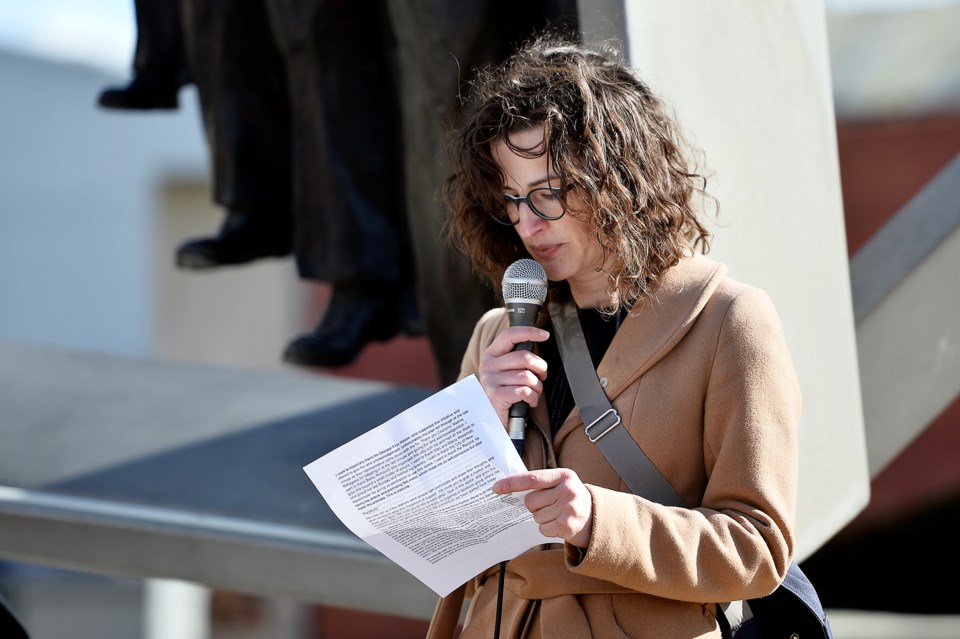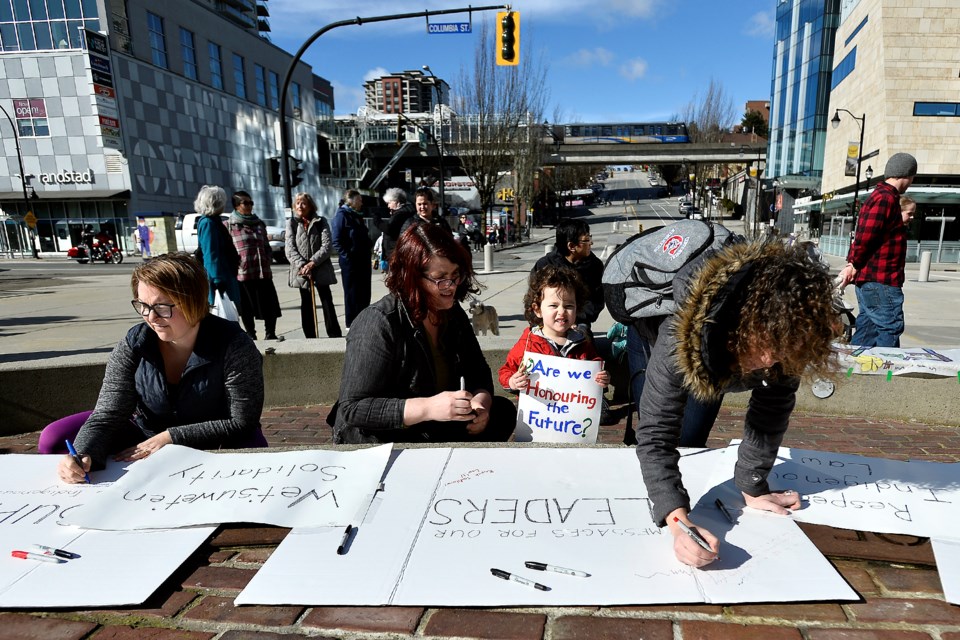About 30 people gathered at Hyack Square on Saturday in a show of solidarity with Wet’suwet’en hereditary leaders.
New West resident Christa MacArthur invited community members to join her in a peaceful demonstration of support of Wet’suwet’en hereditary leaders who oppose construction of a natural gas pipeline through their traditional territory in northern British Columbia.
“We had set up some simple creative activities and people shared their thoughts about supporting Indigenous people,” she said in an email to the Record. “Children also spontaneously spoke and sang, which got emotional for me.”

MacArthur told those gathered in Hyack Square that her heart was bursting with gratitude for the kindness and support of this community.
“What does a white woman like me, who has never been to Wet’suwet’en territory, know about the situation? Not much. What right do I have to speak to the dispute over the LNG pipeline through Wet’suwet’en territory? None. And so I won’t. I won’t speak to the pipeline or the Wet’suwet’en Nation,” she said. “I want to speak to how our community can support Indigenous people. We can listen to Indigenous voices. Listen to their visions for the future of this land and its peoples. Their voices have been powerful and clear. We need to listen to them, hold each other accountable, and demand better from our own leaders.”
The New West gathering occurred on the same day Wet’suwet’en hereditary leaders met with federal and provincial officials to see if they could reach an agreement on the Coastal GasLink pipeline project. After three days of discussions, Wet’suwet’en chiefs and federal officials reached a tentative arrangement on Sunday over land title rights of the hereditary leaders over their traditional territory but they could not agree on how to move forward with the controversial pipeline being built on their land.
While some of the Wet’suwet’en hereditary chiefs oppose construction of the Coastal GasLink natural gas pipeline through their traditional territory, 20 First Nations have signed agreements in support of the pipeline, including Wet’suwet’en elected band councils. Blockades and rallies in support of the Wet’suwet’en hereditary leaders have taken place across Canada in recent weeks.
“Indigenous people across this land have experienced increased hatred and racism, in words and in actions, as tensions have risen. This is their home. This is their home,” MacArthur told a crowd of about 30 people at Hyack Square. “We need to not be silent bystanders. We need to be brave and speak out against hatred.”
Frustrated by her own feelings of complicity in this crisis, MacArthur said she compulsively made a sign and sat outside the New Westminster Law Court in Begbie Square on Feb. 23. When friends told her they wanted to join her and help organize another event, she said she was buoyed by their support.
“Look at the crowd gathered here today. This has grown beyond my expectations in one short week,” she told those gathered in Hyack Square of Feb. 29. “This feels like hope. Thank you all for sharing your hope.”



